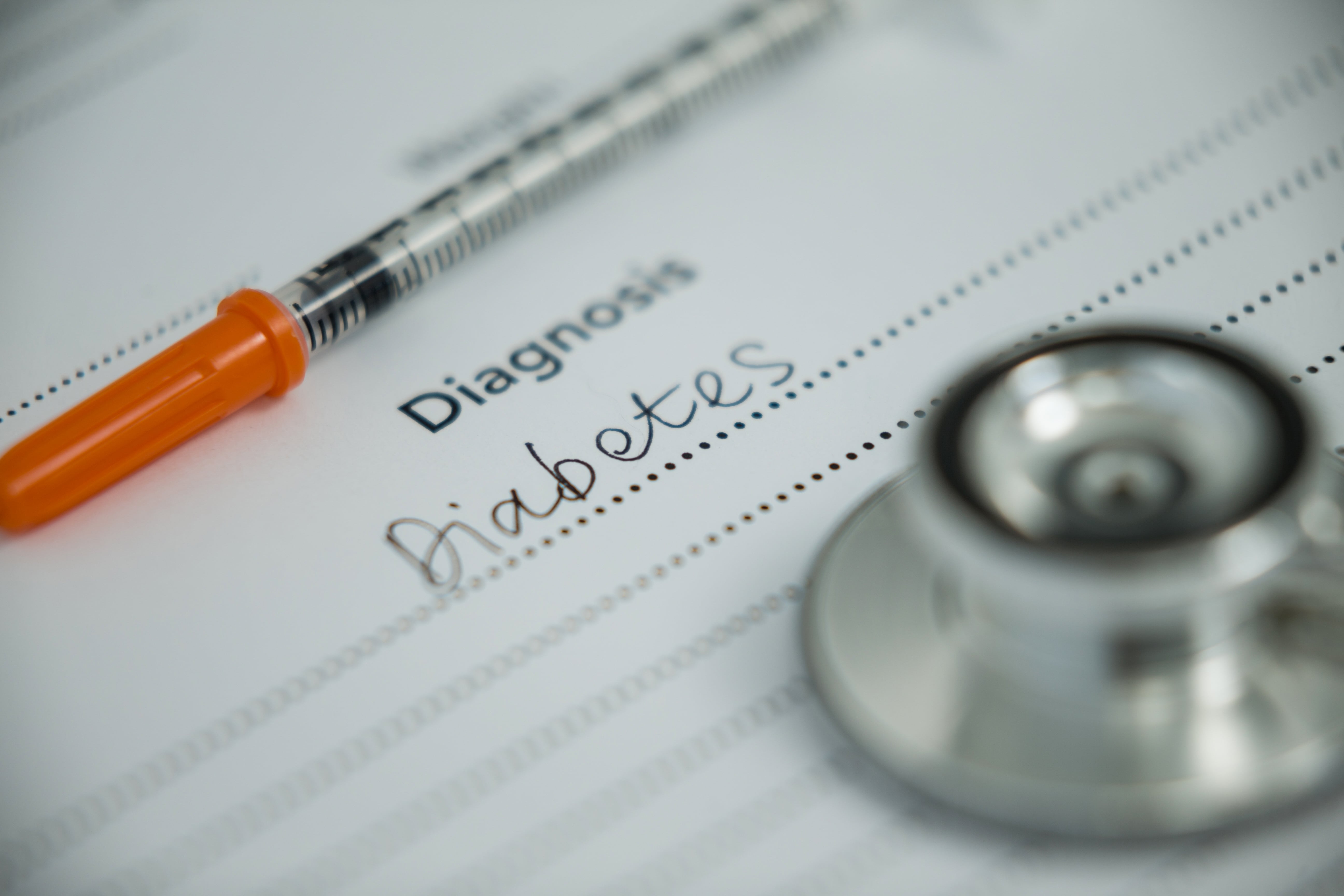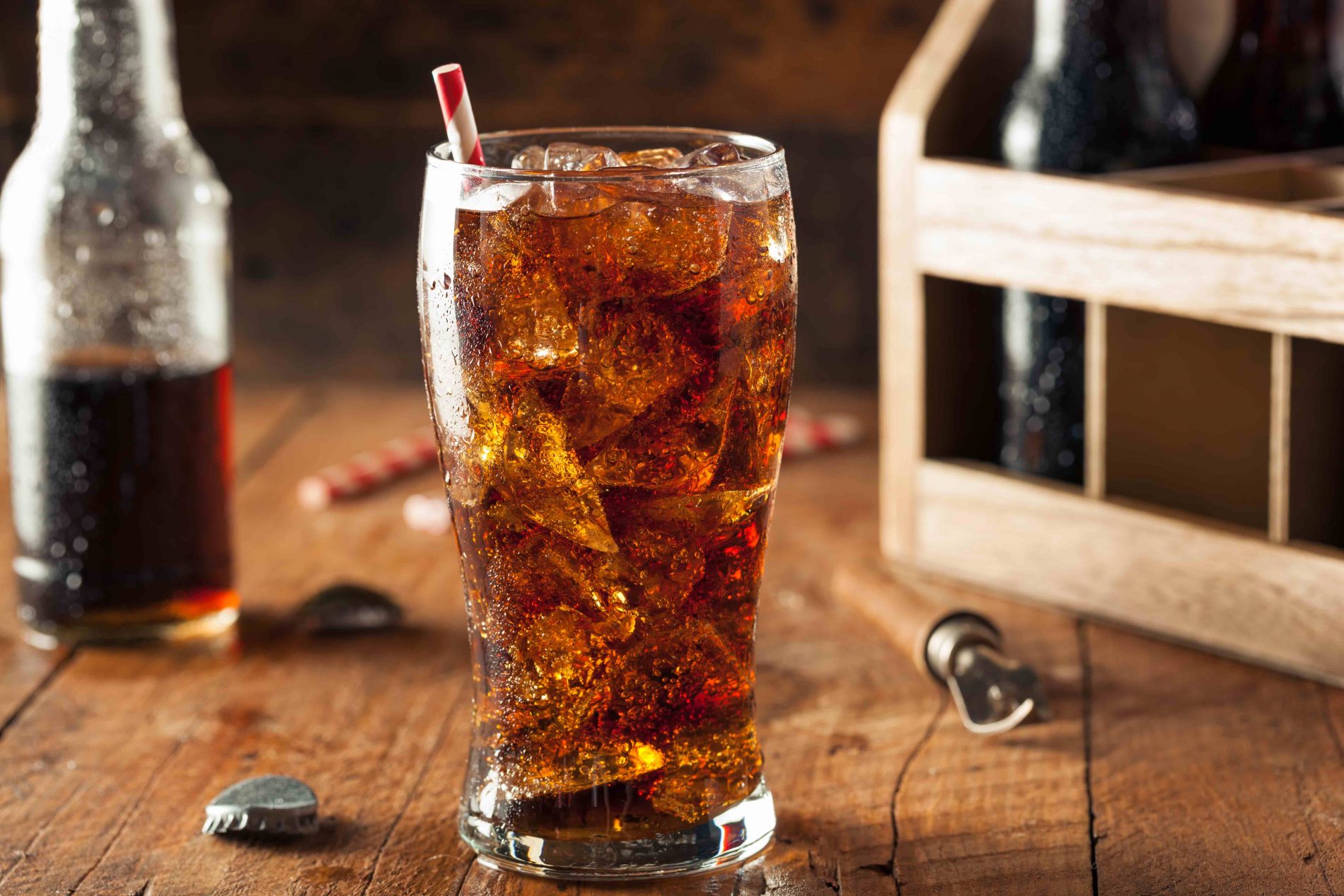Diabetes occurs when the body struggles to regulate the amount of sugar that’s in your blood. This leads to high blood sugars called hyperglycemia, that over long periods of time these sugars start to weaken your blood vessels which causes damage to your internal organs. Diabetes is one of the most common causes of death in the world and is triggered by prolonged poor eating habits.
Your pancreas releases a hormone called insulin which is the key that allows sugar into your cells and removes it from the blood. However, it’s estimated that over 60% of adults suffer with some degree of insulin resistance, a situation where your cells can no longer accept sugar because they have been bombarded with sugary foods, refined carbs, nitrates, or too frequent meals for many years.
In the beginning this doesn’t usually show up on A1C blood test because your body compensates by pumping out more insulin. For this reason, it is important to recognize the top 12 early signs of insulin resistance and prediabetes to watch out for.
Dark patches of skin
You may start to notice darkened areas of velvety or leathery skin in the folds of your body such as your armpits, neck, or groin. When there’s too much sugar or insulin in your blood the skin cells start to reproduce too quickly and at a rapid rate. These new cells have more melanin pigment making it appear darker then the surrounding skin.
Sugar cravings
After you’ve eaten, when your blood sugars aren’t being controlled properly, you will likely crave the sweet or sugary snack shortly after you finish your meal. This happens because your cells aren’t accepting the sugar normally from your blood which tricks your brain into thinking that you’re still hungry and you crave sugar for a quick energy boost.
Blurred vision
At the early stages of insulin resistance you may begin to develop blurred vision. This happens because your cells are no longer accepting insulin and glucose causing the lenses of your eye to swell with fluid. The high blood glucose could also damage the blood vessels connected to your eyes causing distorted vision, blurriness.
Frequent urination at night
If you have too much glucose or sugar in your blood it binds to water causing your body to hold more fluid. Your kidneys also must work overtime to filter this extra sugar in your blood which causes you to pee more frequently especially during the night. This also makes you thirstier during the day and this causes a vicious cycle.
Puffy face
If you’re eating too many carbohydrates or sugars and your body can’t control your blood sugars, you’ll likely develop puffy face especially around the cheeks. The high amount of sugar in your body is causing fluid retention and making your face appear bloated. You also get darkening and puffiness around your eyes and eyelids. You may notice that if you cut out the carbohydrates for a week or two your face starts to shrink very quickly. This is not usually fat loss but simply a loss of the excess fluid.
Tingling or numbness in the feet or hands
Tingling, burning, stabbing, or shooting pain in your feet, toes, or hands may be a sign of neuropathy. The high insulin and sugar in your blood is damaging to blood vessels and peripheral nerves causing them to misfire and send odd signals to your brain. This can also worsen into numbness and a loss of function if it develops from pre diabetes into full blown type 2 diabetes.
Skin tags
Skin tags can be harmless but if more continue to grow over time then this could be a sign of prediabetes. High levels of insulin causes the skin cells to reproduce rapidly and as it’s an anabolic hormone, it causes the skin tags to grow. Many people who have reversed insulin resistance with natural methods find that their skin tags naturally start to disappear.
Belly fat
When you have high amounts of sugar in your blood for long periods of time your body must convert this into fat to preserve the energy for the future. Too much insulin and glucose causes your liver to become filled with fat and this starts spilling over into your belly area.
Tiredness
After eating a meal, you should feel energized and alert as you’ve just nourished your body with vitamins and minerals. However, if you notice that you feel extremely tired after eating then this may indicate that you have insulin resistance, and the fuel isn’t getting into your cells properly.
Itchy skin
This occurs because high blood sugar and insulin is damaging to blood vessels which supply nutrients to the skin. It can also make your skin more susceptible to bacterial or fungal infections which may cause boils and abscesses. Eating too many carbohydrates and sugars can also deplete vitamin B3 which is very important for keeping your skin healthy.
Slow wound healing
Higher levels of sugar in your blood causes poor circulation so it can take longer for a minor cut, bruise, or a wound to heal properly. This gets progressively worse as you become a diabetic and can eventually lead to loss of limb.
Brain fog
This happens when your blood sugars spike and then fall dramatically leaving you hypoglycemic. This means that not enough fuel is reaching your brain causing you to feel foggy.
Causes of Prediabetes/Diabetes
Why do refined, highly processed foods cause prediabetes? The nutrients in these types of foods have been stripped away leaving you with only the energy portion which is glucose. Without these nutrients like B vitamins, for example, your body struggles to process the sugars properly causing insulin resistance.
The second cause is high levels of mental stress. When you’re stressed your body makes more of a hormone called cortisol. Problem is that if you have too much cortisol it breaks down your muscle and fat and turns it into blood sugars which overtime can cause insulin resistance and diabetes.
Another cause is having too frequent meals throughout the day which bombards your cells with so much fuel that they cannot handle anymore. Every time you eat you raise insulin, and our bodies weren’t designed to be eating all day which is why fasting really helps to reverse prediabetes.
Can You Prevent Diabetes?
The answer is yes and here are a few tips to start incorporating into your daily routine.
- Cut out refined carbohydrates, sugar, flour, and grain-based foods.
- Replace refined foods with healthy fats to keep your hunger levels down.
- Consume nutritional yeast to supply B vitamins which reduce cravings and reverse nerve damage.
- Eat lots of organic, cruciferous vegetables such as kale, collard greens, broccoli, Brussels sprouts, cabbage, and cauliflower. These leafy greens are loaded with potassium and magnesium, two key minerals which help to reverse insulin resistance and regulate your blood sugars.
- Soluble fiber in vegetables also helps to stabilize your blood sugars.
- Start taking the daily supplement of chromium picolinate. This is a very powerful trace mineral which helps insulin and glucose become more sensitive in the body so that it can be moved into the cells. Chromium also helps your liver to produce the master antioxidant glutathione which also helps to prevent diabetes and oxidative damage.
- Stop snacking between meals.
- Try taking a teaspoon of MCT oil at the end of your first meal. This is made from coconuts that keeps you feeling full for longer by providing an alternative fuel source to your cells which are called ketones instead of glucose.
- Manage your stress levels and get at least 7 to 9 hours of sleep each night.



